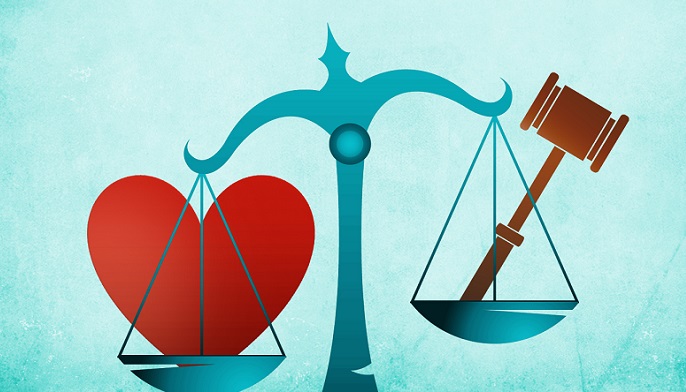“For the wages of sin is death, but the gift of God
is eternal life in Christ Jesus our Lord”
(Romans 6:23).
Sin is voluntary separation from the Lord; and grace is a gift which is selfless and undeserved. Below we compare what sin has taken from us, and what grace can resotore.
Sin deprived us of the tree of life. Obedience to the divine mandate was not only a test of love and loyalty, but of the formation of a character dependant on God.
Grace restores our right to the tree of life; today as a promise, but soon as a reality. This tree is the symbol of eternal life which comes from the Fountain of life.
Sin placed us under a death sentance. The final destiny of a sinner is the grave, after travelling a path of pain and suffering.
Grace gives us the victory over death. God’s gift is offering us life, and life abundantly (John 10:10), because “he who beleives in [Him], though he may die, he shall live” (John 11:25).
Sin cast us out to earn our sustenance by our sweat and pain.
Grace provides us with the hidden manna. Christ is our Manna; He is our “bread of life” (John 6:48, 58; Rev. 2:17).
Sin stole our dominion from us. We went from being administrators of the world to satan’s slaves.
Grace gives us “power over the nations” (Rev. 2:26), because God restores our dignity. Today we are part of the Kingdom of Grace, and soon, when He returns, we will be part of the Kingdom of Glory, which “break in peaces and cosumes all these kingdoms, and it shall stand for ever” (Dan. 2:44).
Sin left us naked, physically and spiritually. It took away our innocense and decency; it brought us guilt and shame.
Grace provides us with white robes that represent Christ’s righteousness, which is “accounted for [our] righteousness” (Rom. 4:3-6).
Sin drove us away from God’s presence. Adam and Eve hid, and we do the same thing. But, where could we possibly go?
Grace promises us that we will always be in His presence. The Lord looks for us, not to condemn us, but to give us another opportunity and assure us that one day we will live forever in His presence (2 Thess. 1:7-10).
Sin returns us to dust. Man was created from the dust of the earth and will return to it (Gen. 3:19; Job 10:9; 34:15; Eccl. 3:20).
Grace places us on the throne of God to be royalty together with Him (Rev. 5:10).
Thank you, Lord, for Your grace, which gives us
all these blessings for the present and eternity!
God bless you…










